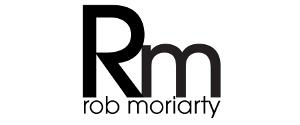This week I was fortunate enough to be invited to the State of Access Report launch at The Roundhouse, London. Authored by the Attitude is Everything Campaign it follows a similar report in 2011 looking at the issues deaf and disabled people face when accessing events at arenas and venues across the UK.
The report itself was only possible thanks to around 200 “Mystery Shoppers” road-testing venues, compiling their thoughts in questionnaires, ranging from ticketing systems and accessible phone line booking options through to the physical access options at the venues and staff assistance.
 I signed up as a Mystery Shopper a bit late in the process so wasn’t able to do any road testing myself, but will certainly do so in any future report releases. The report infographic unsurprisingly highlights that in the majority of cases, deaf and disabled people will experience some form of barrier that non-disabled do not suffer.
I signed up as a Mystery Shopper a bit late in the process so wasn’t able to do any road testing myself, but will certainly do so in any future report releases. The report infographic unsurprisingly highlights that in the majority of cases, deaf and disabled people will experience some form of barrier that non-disabled do not suffer.
Whilst not shocking in the slightest it was pleasantly surprising attending the report launch that an overwhelming sense pervaded the room of a collective willingness to actually do something about these issues this time. Much I believe was helped by the report itself which statistically disproves the previous venue notion that making places more accessible resulted in a financial loss, particularly where admitting carers free of charge was concerned.
The AiE charter has three levels, Bronze, Silver and Gold. Bronze is awarded to venues that amongst other requirements have two-for-one (or equivalent) ticketing policies for those needing carers with them. The report showed that venues with such options increased disabled person booking revenues from £40,000 to over £180,000 – over a 400% increase – not only proving that making venues more universally accessible to all is commercially beneficial, but that there is huge buying power within the deaf and disabled community.
AiE were looking out for as many examples of existing two-for-one ticketing policies. Given my long-standing previous beef about paying (or not) for carer tickets, I introduced them to the Cinema Exhibitors’ Association. I’d separately discussed with them as part of my own research into a larger access card scheme that I’ve long felt was missing and in high demand for some time. My introductions between the two eventually got all of them in the same room at this report launch. Combined with the Society for Ticket Agents and Retailers President, they acknowledged that a universal access card or “proof of disability” is needed and have set up a working group to explore what options may be possible – all in conjunction with making ticketing systems and booking lines more universally accessible.
It may take some time, but hopefully my meddling and introductions will yield something positive further down the road that any venue of any type can opt into, simplifying the confusing array of discounts that may or may not be available depending on where you might happen to live.
If I have any updates I will of course keep you up to speed.
Rm.

